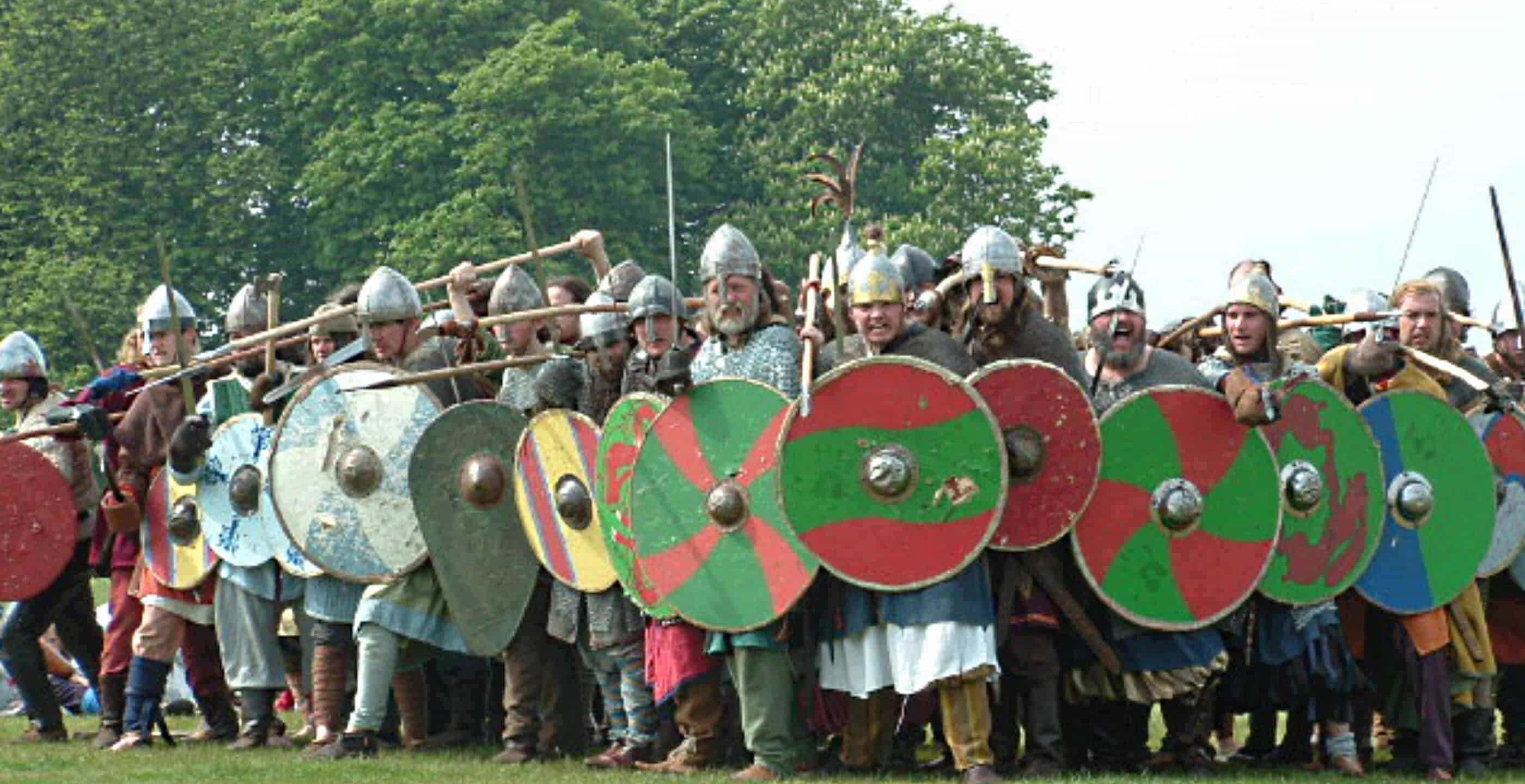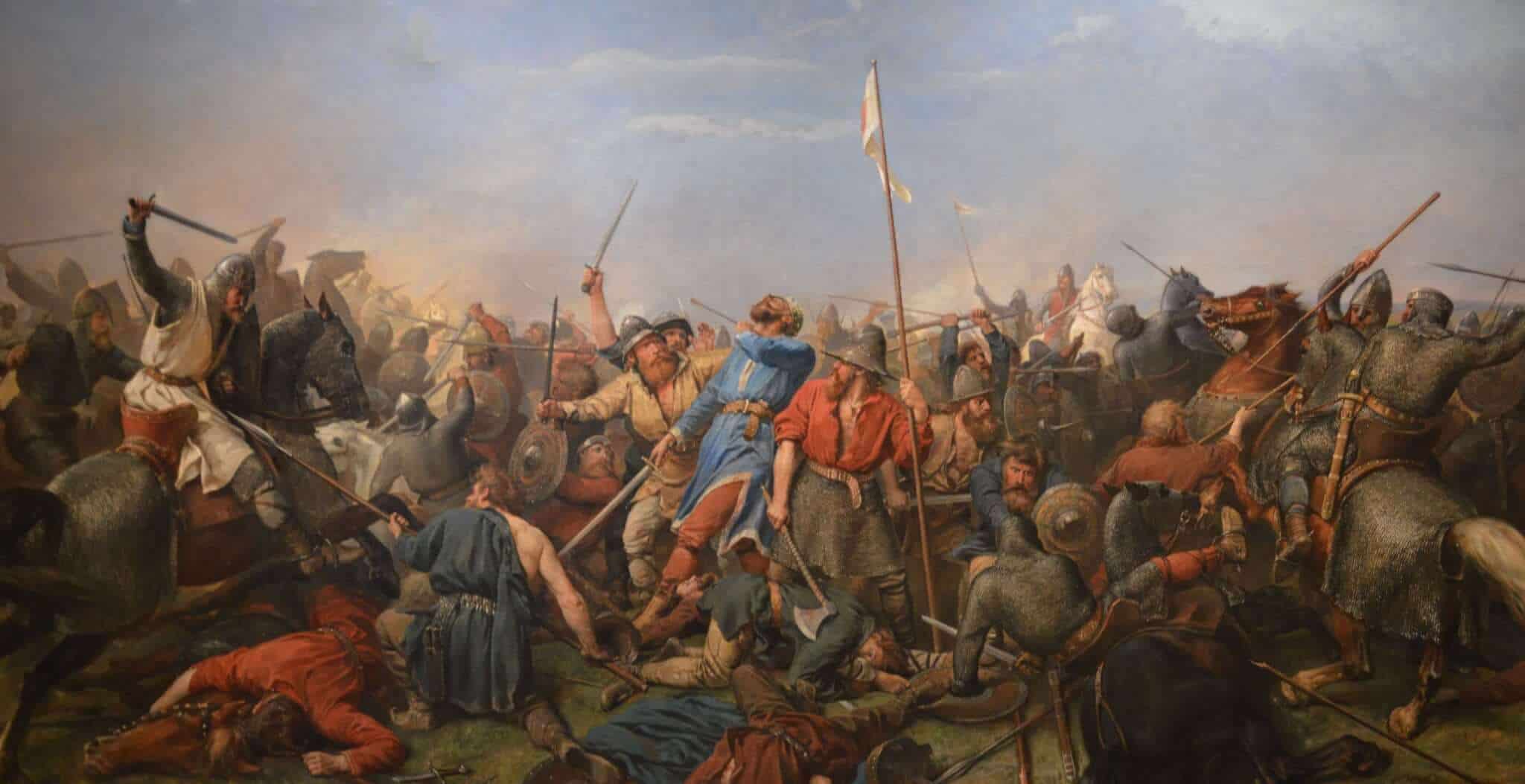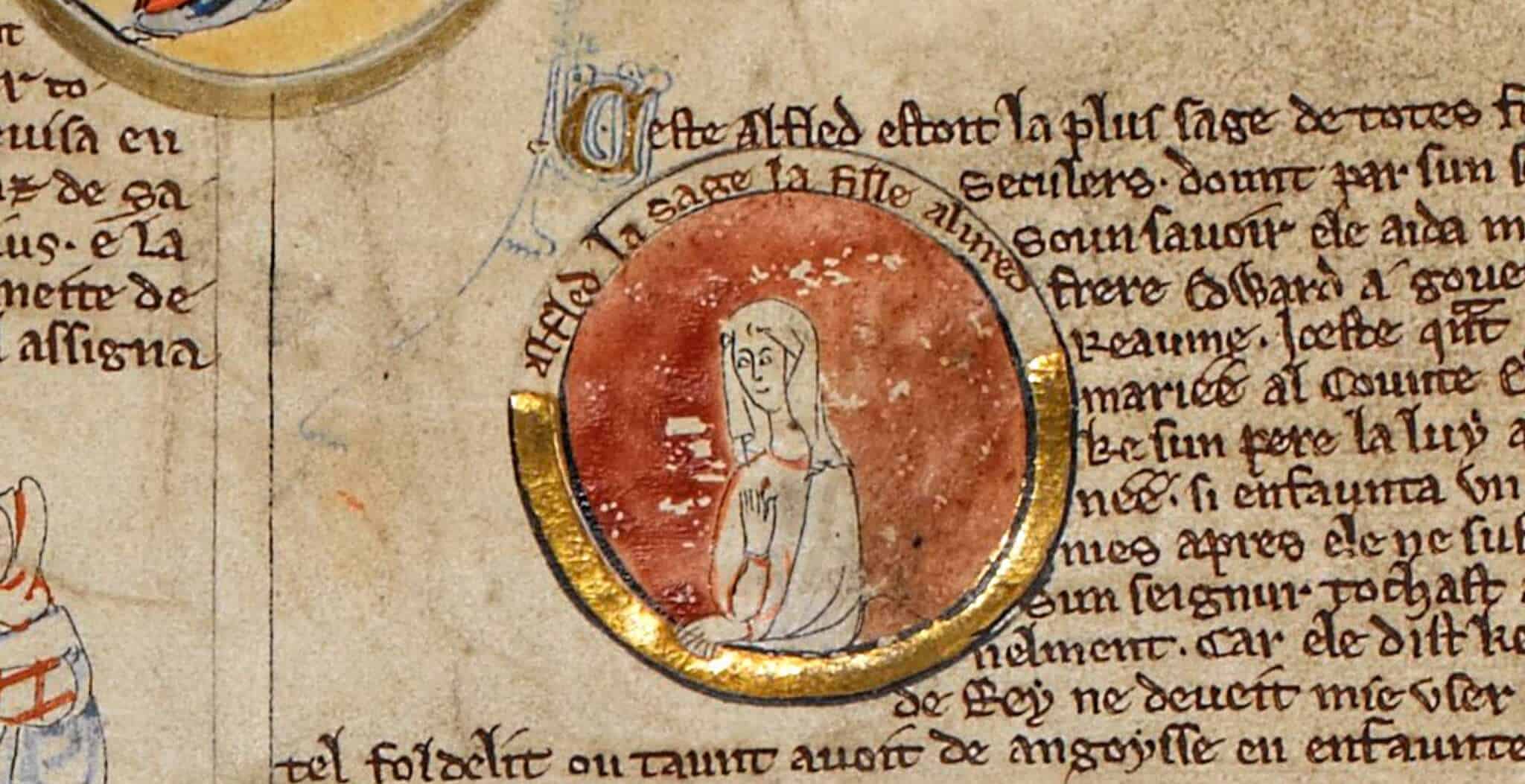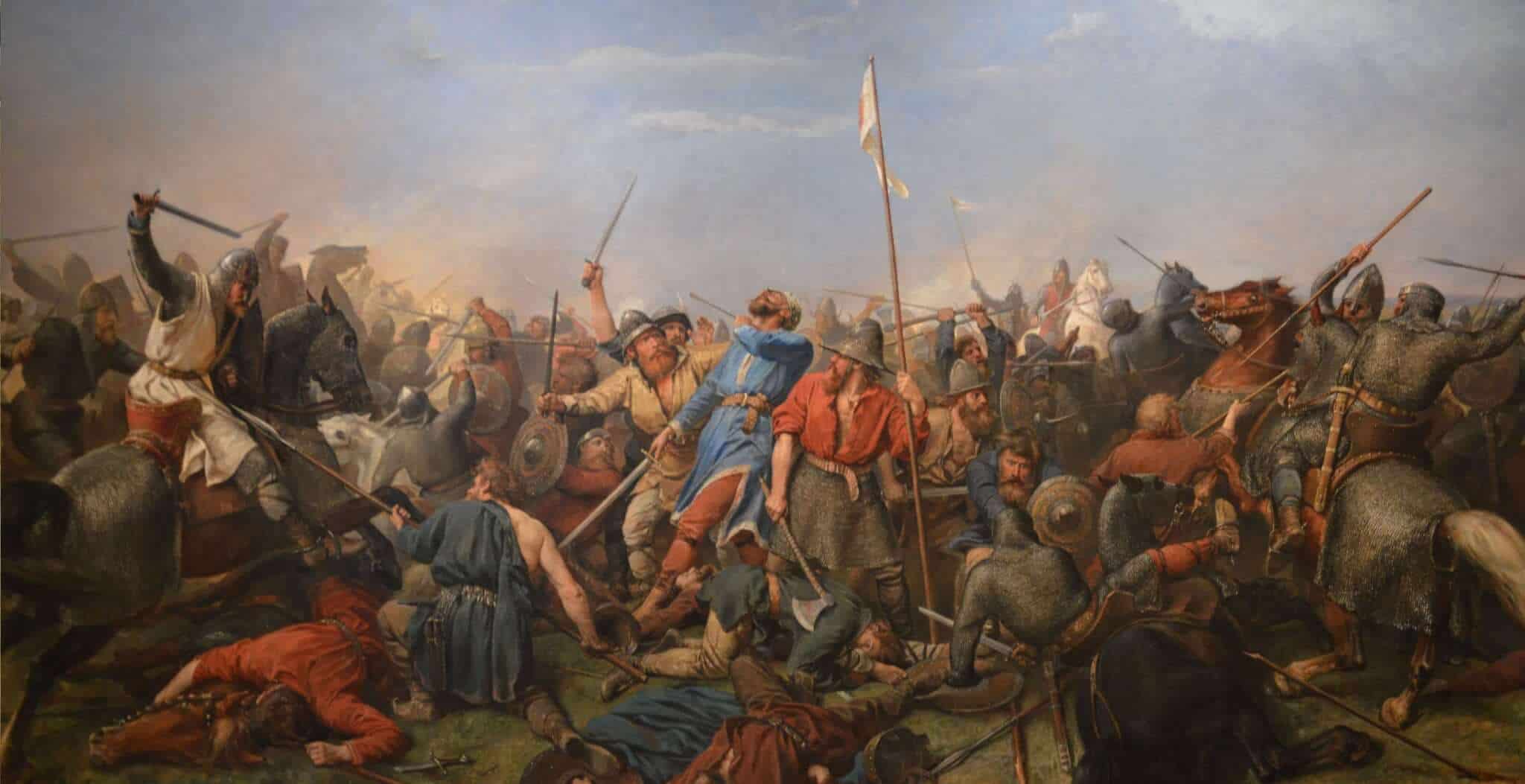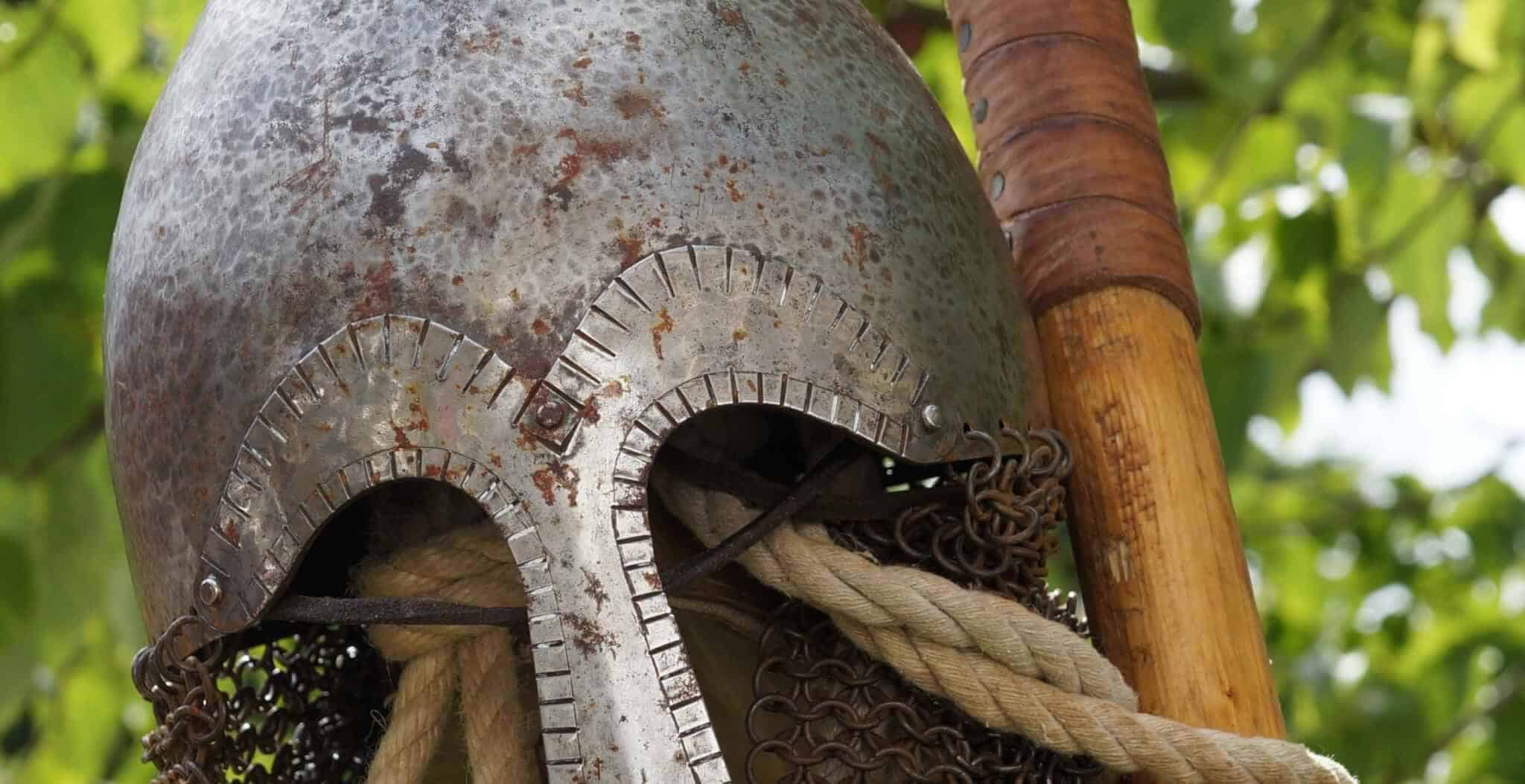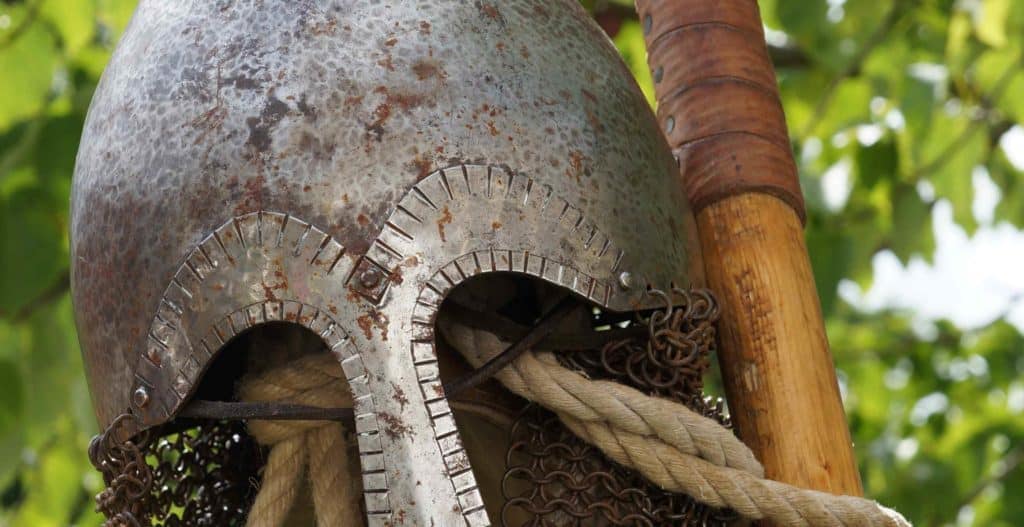As recalled in the 325-line Anglo-Saxon poem ‘The Battle of Maldon’, a marauding army of Vikings were confronted by a force of East Saxons led by Ealdorman Brihtnoth (Byrhtnoth) in AD 991.
The Vikings had already pillaged Folkestone, Sandwich and Ipswich before they were confronted by Brihtnoth at Maldon.
The Vikings had established their temporary base on Northey Island, which is linked to the Essex mainland by a causeway, only accessible at low tide.
Brihtnoth and his militia force took up their position at the causeway end during high tide, when the two sides could only shout insults at each other.
Brihtnoth refused to pay the invaders to leave, challenging them to battle instead, even agreeing to let them cross the causeway to do so.
In true English style, the Saxon army formed their mighty shield wall and waited for the Vikings to advance.

The Vikings fired arrows and then spears into the massed ranks of Saxons, before the two forces became locked in bloody hand to hand combat. It is thought that the battle was relatively even, but turned in the Viking’s favour when Brihtnoth was killed.
Although the Vikings were eventually victorious they had lost so many men that it is said that they had barely enough left to man their boats to leave, let alone continue with their raid on Maldon.
Click here for a Battlefield Map
Key Facts:
Date: August 991
War: Viking Invasion
Location: Near Maldon, Essex
Belligerents: Anglo-Saxons, Vikings
Victors: Vikings
Numbers: Unknown
Casualties: Both sides heavy
Commanders: Byrhtnoth (Anglo-Saxons), Olaf Tryggvason (Vikings)
Location:
